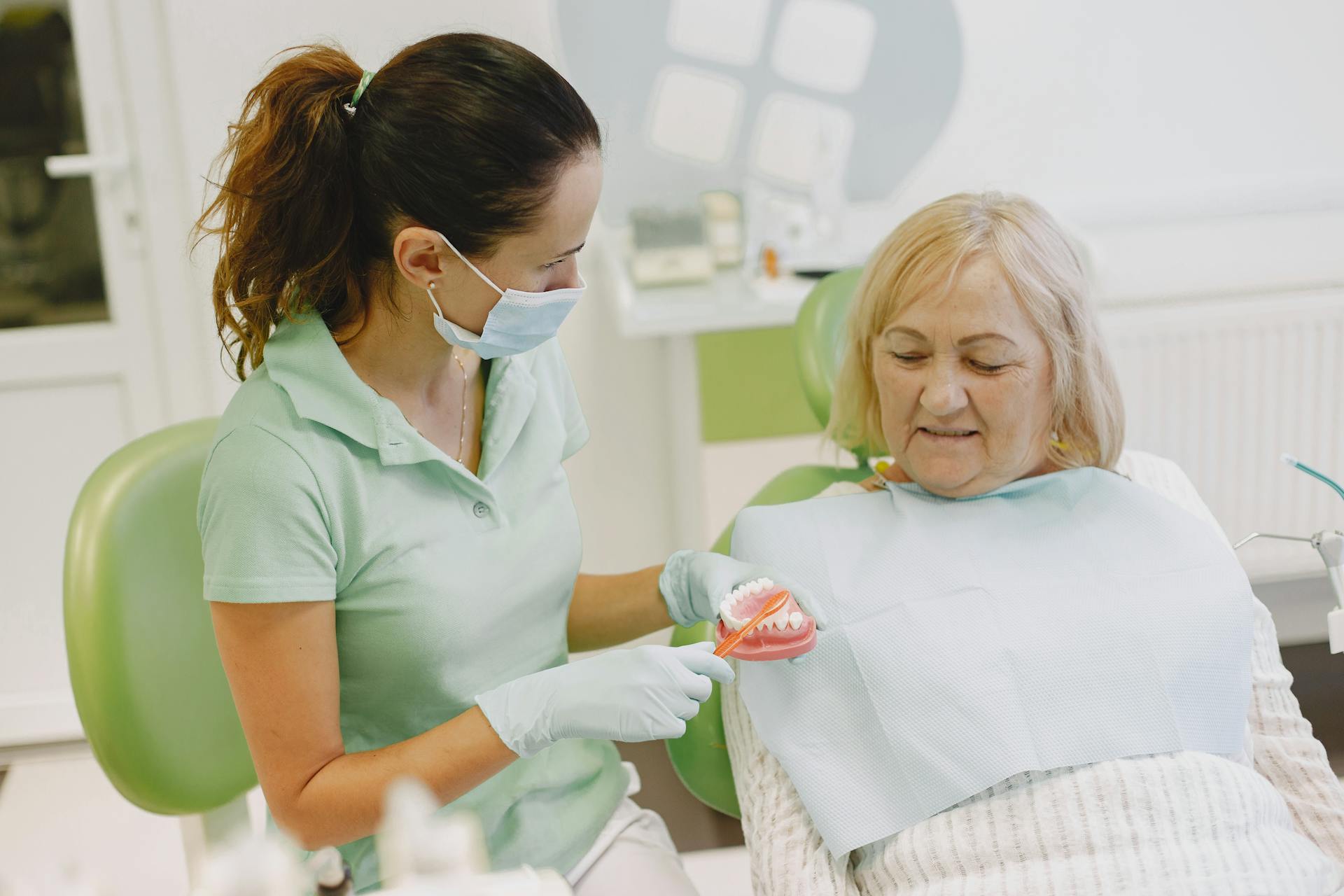New research has looked into a potential connection between the number of teeth a person has, their income, and the onset of Dementia. This is an interesting subject, and one that hasn’t been examined before. While these areas can potentially be linked individually, all three have not been studied together before. Moreover, the results can help to guide potential treatment directions.

A groundbreaking study has sought to find if a connection exists between the number of teeth a person has, their income, and the onset of Dementia [1].
This is an interesting topic – with these three areas having not been linked together in the past. While oral health and dementia have been strongly connected [2], the addition of income into the equation brings an interesting new variation to the subject area.
What is Dementia?
The main focus of this study was on dementia, as well as the factors linked to its onset. Dementia is a syndrome that is associated with ongoing cognitive decline and worsening brain functioning [3].
The syndrome can be very debilitating, not only for the person with the condition, but also those around them – including their loved ones.
Dementia can impact the way that a person remembers, speaks, thinks, feels, and behaves [3]. Memory loss is the main symptom of the condition.
There are many different types of dementia. Alzheimer’s Disease is the most well-known type, and is common. For example, in the United States, around 7million people over the age of 65 are living with the condition currently [4].
The Study
The study was led by the International Association for Dental, Oral, and Craniofacial Research (IADR). The IADR is a nonprofit organization that undertakes dental research around the world [1].
The study was presented at the 102nd General Session of the IADR in Louisiana, United States, in March 2024 [1].
The research team wanted to see how these three areas combined with one another. To do so, they used the Japanese Gerontological Evaluation Survey (JAGES), which provided various details on Japanese nationals, including oral health statistics and diagnoses of dementia [1].
In total, 44,083 participants were used. The researchers focused mainly on adults aged over 65, and tracked their progress over a nine year period from 2010 to 2019 [1].
To measure the association between the three areas, something called the Cox Proportional Hazard model was used [1]. This is a special model that specifically allows multiple variables to be tracked – which in this case was income, dementia and teeth.
What were the results?
The model was used to formulate the results. While the connection between dementia and oral health is known, the researchers were unsure as to how income would impact the relationship.
Out of the participants, 17.3% of them had a diagnosis of dementia. Interestingly, out of this 17.3%, those with lower incomes had fewer teeth. However, for those with higher incomes, they had more teeth [1].
Moreover, for those with lower incomes, they typically had fewer teeth. As above, they were also more likely to have dementia. For those with higher incomes, they had more teeth [1].
These findings showed that all three areas were very relevant to one another. Furthermore, the researchers were able to confirm that there is a strong association between the three.
Income certainly played a big role, and appeared to be the key factor. As those with a higher income typically had more teeth, and were less likely to have dementia. Meanwhile, those on a low income typically had less teeth, and were more likely to have dementia.
These results should be able to help with future treatment approaches. It could be argued that those on lower incomes need to be aware of the importance of looking after their oral health – as it can seemingly increase the chances of dementia developing. This could be mentioned both by dentists and family doctors.
Overall, the findings provide further proof of the link between dementia and oral health. However, it also adds to the body of research on this subject, with the addition of income as a factor providing further insight to the research area.
Thinking points…
[1] Having knowledge of the link between dementia and oral health is important. While growing older is a concern for many, we should strive while we can to battle cognitive decline. As shown, poor oral health is linked with cognitive decline. Therefore, this underlines the importance of our oral health, making attending dental check-ups crucial. We recommend booking an appointment now!
[2] Do you know anyone with dementia, or anyone affected by it? If so, you could consider seeing if you can assist someone with the condition with their oral health. Clearly, strong oral health can help them. Perhaps you could offer to take them to a check-up or offer to buy toothpaste or floss for them? Have a think about what you can do to help!
What we offer at Taradale Dental
Taradale Dental is a dental clinic based in Calgary, Alberta, Canada. At our Calgary dental clinic, we provide a range of services for our patients.
We advise our patients to attend our Calgary dental clinic at least twice per year for a regular dental check-up. At these check-ups, we provide a comprehensive review of a patient’s oral health. If any problems are detected, we have many treatments available. For example, these include cavity fillings and root canals. To strengthen your oral health, we recommend brushing your teeth at least twice a day and flossing regularly.
Here at Taradale Dental, we also have some cosmetic treatments available! These include dental implants, teeth whitening and Invisalign[TM]! Our patients find that these treatments have a positive impact on their appearance, confidence and self-esteem.
Moreover, the fees of our treatments at our Calgary dental clinic Taradale Dental are set in line with the Alberta Dental Fee Guide. This ensures transparent and fair pricing, with no hidden costs.
We hope to see you soon at our Taradale Dental clinic in Calgary! You can find out more about us by visiting our website https://taradaledental.ca/!
References
[1] IADR. (2024). Mediation Effect of Oral Health on Inequalities in Dementia. Available: https://www.iadr.org/about/news-reports/press-releases/mediation-effect-oral-health-inequalities-dementia. Last accessed: 23rd March 2024.
[2] Kiuchi, S., Cooray, U., Kusama, T., Yamamoto, T., Abbas, H., Nakazawa, N., Kondo, L., Osaka, K., & Aida, J. (2022). Oral Status and Dementia Onset: Mediation of Nutritional and Social Factors. Journal of Dental Research. 101 (4): p420-427. DOI: https://doi.org/10.1177/00220345211049399.
[3] NHS. (2023). About dementia. Available: https://www.nhs.uk/conditions/dementia/about/. Last accessed: 23rd March 2024.
[4] Alzheimer’s Association. (2024). Alzheimer’s Disease Facts and Figures. Available: https://www.alz.org/alzheimers-dementia/facts-figures. Last accessed: 23rd March 2024.


